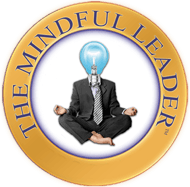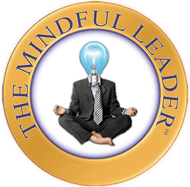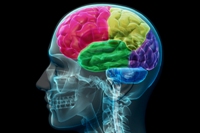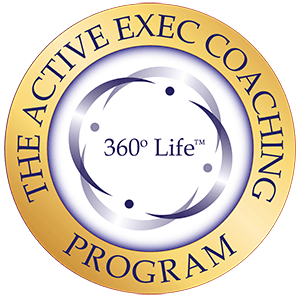Although the types of addiction vary from sugar and shopping to alcohol and heroin, it is important to understand that the addictive behaviors themselves often have a root in the psyche or subconscious mind that is similar but unique for numerous people. Many times, people with addictions are filling some kind of emotional void or numbing unresolved or unhealed emotional traumas. Mindfulness and inner work can help you to understand where the addictive behaviors come from, whether they are an issue (for example, having a glass or two of wine on a Saturday night versus drinking two or more bottles a day all week long), and how to overcome them without as much risk of relapse and faster resilience if there is a stumble. The root cause of the behavior is what must be addressed, not the addiction itself, which is why many traditional treatments used to end up failing and people would relapse. Learning how to work on yourself from within is one of the most powerful ways to help yourself overcome many kinds of addiction. Read on to learn more about the inner work that will help you to let go of your addictions and embrace your true self.
Disclaimer: This article is not intended as a substitute for the medical advice of physicians. The reader should regularly consult a physician in matters relating to his/her health and particularly with respect to any symptoms that may require diagnosis or medical attention.
Many people believe that addiction is something that you cannot possibly beat alone, but there is a different perspective to consider before setting such a hard limit upon the individuals who do suffer from addiction and don’t necessarily have a reliable support system to turn to. Or who have watched all of their old relationships fall apart due to codependency issues and now have to choose between well-earned personal freedom and codependency that nurtures an environment for relapse. Or maybe there are some toxic behaviors displayed by dysfunctional individuals and they actually purposely sabotage your progress in some way. No matter the situation, sometimes battling it out alone is the best thing you can do for yourself. That’s not to say that you shouldn’t ask for help if you need it or accept it if it’s offered, but the most important thing to remember is that you are the beginning and the end of your addiction.
You are the only person who is with you throughout your entire journey, from birth to death. No one else. So doesn’t it make sense that the root cause of your addictive behavior lies within you, a buried aspect of yourself that you are afraid of looking at directly because of the guilt and shame surrounding it? This is where inner work comes in, and you have to be determined and willing to feel all of your emotions, including fear and hatred and self-loathing. You must also be willing to love yourself completely, including those parts of yourself that you feel shame or guilt about and cover up with addictive behaviors.
Here are a few ways in which you may be able to help yourself overcome your addictions, mindfully and successfully.
1. Think of negative aspects of how your addictive behavior makes you feel, and positive aspects of how you feel when you are not tangled up in that addictive behavior. An example of this is when I quit smoking cigarettes. Rather than thinking about how much I missed it and how I missed the sensation, I would focus instead on how disgusting it was to have to hack up a bunch of nasty stuff all the time, constant stuffy noses, and my voice being too damaged to sing. Sure, the raspy voice is sorta sexy, but when I can’t even sing songs I wrote for my own voice, that’s pretty sad.
2. Listen to your body. When your pain levels increase (or your perception of the pain changes), it might be time to consider stopping the numbing. You may begin to notice that your pain actually increases after using any kind of substance to numb yourself, including alcohol and marijuana. While marijuana is much healthier for you overall and can be used for medicinal purposes, anything you use to numb your senses actually only numbs your perception of those senses, and when that perception becomes clear again, your pain seems worse than it was before. I think this is because your perception is remembering how bad the pain was before and at the same time longing for the numbness to come back, making it depressing as well as painful. Because we wear negative lenses while depressed and everything seems worse than it is, I think this has a lot to do with our perception of the pain and getting back to a “normal” sense of the pain we’re feeling rather than an over-inflated sense of it due to coming down from a substance.
3. Get to the root cause of your addictive behavior. Not all addictions involve outside substances, so the way your brain chemistry is altered during use of the substances creates the addiction, not the substance itself. Think about that for a minute. The substance itself doesn’t cause addiction; the way it alters your brain is what causes the addiction. That’s because addiction has to do with your prefrontal cortex and how your mind deals with cravings, rewards, and pleasure. If you were raised in an environment where you had to chase down attention or affection and love was very conditional, for example, you may fall prey to addictive behaviors because you’re tired of having to earn something you deserve no matter what (unconditional love from your parents in this example), and all that chasing is exhausting. Using a substance to keep yourself from caring enough to chase after that affection or simply feel good for no reason is the resulting solution. I think this is because we subconsciously know that we’re supposed to be joyful and happy, and when we can’t pinpoint what’s wrong in an easy way or a way in which we can avoid responsibility (or negative emotions toward people we care about), we turn to addictive substances or behaviors that make us feel good and give us that high, when really we should be connected to our souls and inspired from within most of the time, and that’s what we miss because on some level we remember that feeling. That example goes more into the spiritual realm, but both of these examples illustrate digging deep to figure out what the root cause of your addiction is, and knowing this allows you to be more understanding and compassionate toward yourself as you work through the self-healing process.
4. We’ve talked about substances, but not all addictions involve substances. There was a fantastic article in National Geographic magazine in October of 2017 about the brain science behind addiction, and many of the breakthroughs and cutting-edge ideas are due to incorporating mindfulness and neuroscience into their research. The human brain can re-wire itself through repetitive action, meaning you can overwrite any existing programming in your subconscious simply by replacing the habit and doing something else instead. This article featured a cure for addictions that involved sending electrical pulses to a certain part of the brain to suppress the craving center and disrupt that electrical energy flow within the brain, disrupting the addiction at the same time. Knowing this, it begins to become clear that you have all the power to change your behavior if you choose to accept it. But as they say, with great power comes great responsibility… this rings true on many levels, and this level is one of them. The more you choose to take responsibility for your own behavior and try to change it, the more your ego will fight you, and the more challenging your battle might become, at least temporarily. Or you can wait a couple of years for this electrical pulse treatment to come into the mainstream, but realize that you already have the power within your own mind to reprogram your behavior manually. It just takes more time and effort than some shocks to the brain.
5. Realize that your addiction is not you. You can also help keep yourself from perpetuating your addictive behavior patterns by referring to yourself differently. For example, rather than calling yourself a smoker in thought or conversation, begin calling yourself a non-smoker and keep referring to yourself in this way to re-condition your thoughts. Self-hypnosis and meditation are two ways in which you can also help yourself stay away from addictive behaviors, and you can create a custom positive mantra for yourself to affirm whatever it is you want to affirm based on your unique circumstances. You may also be able to find existing guided meditations or hypnosis recordings on YouTube, so it’s easy to begin to reprogram your own thinking in order to move forward and away from your addiction.
The goal isn’t to force yourself to abstain or feel like you’re fighting a constant uphill battle against an unseen enemy. This is the difficult method of doing things, and it leaves people rife for relapse, which is not a good thing no matter what type of addiction you’re dealing with. The real goal is to re-program your mind not to crave the thing you’re addicted to, to change the way it makes you feel entirely so that you can limit your indulgence to less desperate and more balanced levels. This is the way to get to the root of the problem and stop simply treating symptoms on the surface level. The best and most reliable way to lasting change is through the way you think and your perception of things. You don’t have to be what you’ve always been, and you don’t have to let an out of control habit define you as a person. You also don’t have to live in fear of being triggered all the time, as long as you go within and do the inner work necessary for true and lasting healing.
For more information about the Mindfulness Movement or the International Mindfulness Federation, please visit:










